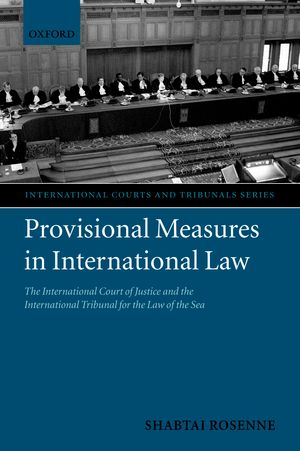
Provisional measures of protection, the international equivalent of an interim injunction, are assuming growing importance in international law. These measures are designed to protect the rights of the parties pending the final decision in a dispute. Since the establishment of the Permanent Court of International Justice in 1921 through its replacement by the International Court of Justice (ICJ) in 1945, the Court's power to indicate provisional measures has been controversial because it has been unclear whether such orders are binding. In 2001 the ICJ set that controversy at rest by deciding that it imposes binding obligations on the parties, and that non-compliance could give rise to an instance of state responsibility and a cause of action.
This rule has also been incorporated into the UN Convention on the Law of the Sea, one of the most important law-making conventions adopted in the last 50 years.These changes make a comprehensive re-examination of the law and practice of the ICJ and the International Tribunal for the Law of the Sea (ITLOS) necesary, both from an academic perspective and as a matter of practice and procedure.Rosenne concludes that its work with provisional measures of protection may be the most significant of the ICJ's activities for the settlement of international disputes and the maintenance of international peace and securit, the prime objective of the United Nations of which the ICJ is a principal organ.